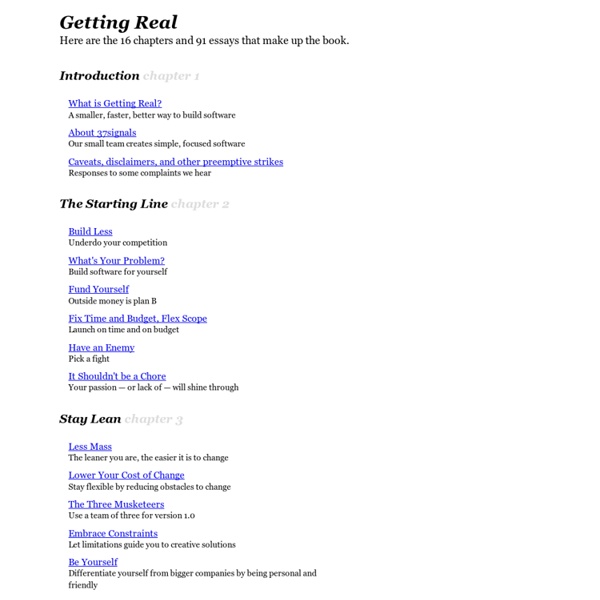Levels of TeX
A friend asked us once, “Should I use LaTeX or MiKTeX?” In various guises, this is a common question, seemingly innocent, but actually betraying a fundamental confusion about the levels of operation in the TeX world. As a further confusion, the word “TeX” can be used to refer to any of a myriad of items at any level. Starting at the top: Distributions:MiKTeX, TeX Live, … These are the large collections of TeX-related software to be downloaded and installed. When someone says “I need to install TeX on my machine”, they're usually looking for a distribution.
Why To-Do Lists Don't Work and Done Lists Do
If you’re only using a to-do list, there’s a good chance you’re making yourself less productive. It’s something that took me quite a while to understand. There’s a simple but breathtakingly powerful fix to your to-do list — keep a done list.
The Untold Story of ILM, a Titan That Forever Changed Film
Lucas had been toying with the idea of what he called a “space opera–fantasy thing”—and had even hired artist Ralph McQuarrie to sketch out some of his ideas—but he was hamstrung by technical constraints. George Lucas (founder): I knew it was going to move very fast, with lots of pans and this giant space battle at the end. Only in those days, you couldn’t do that. I thought, “We’d better figure it out.” It was destined to be my undoing.
LimitLaws.html
Limit of a Constant Function Let be a constant. Then Example: Suppose that we consider .
Setup Restricted User Accounts to Focus and Get Things Done
Do you have your email alerts on, Twitter apps pinging you every second, or IM up and running 24/7? Have you noticed that these constant distractions tend to, well, distract you? If so, rather than turning these things off you can design and create totally different user accounts on your Mac or PC to help you concentrate on the work at hand.
The Gervais Principle, Or The Office According to “The Office”
My neighbor introduced me to The Office back in 2005. Since then, I’ve watched every episode of both the British and American versions. I’ve watched the show obsessively because I’ve been unable to figure out what makes it so devastatingly effective, and elevates it so far above the likes of Dilbert and Office Space. Until now, that is. Now, after four years, I’ve finally figured the show out.
How to Consume Information More Efficiently
As the amount of information that is potentially important to us continues to grow, it’s now more vital than ever to be able to process and consume it more efficiently. Here are some tactics to help you become more efficient with your time and information processing. RSS and keeping up with headlines If you aren’t an RSS user, you should be. It’s an excellent way to become efficient with your time and a good way to get through a bunch of information to find the important stuff quickly.
100 Extensive University Libraries from Around the World that Anyone Can Access « mary & mac design
Universities house an enormous amount of information and their libraries are often the center of it all. You don’t have to be affiliated with any university to take advantage of some of what they have to offer. From digital archives, to religious studies, to national libraries, these university libraries from around the world have plenty of information for you. There are many resources for designers as well. Although this is mainly a blog that caters to designers and artists I have decided to include many other libraries for all to enjoy. Capturing images of manuscripts, art, and artifacts, digital libraries are an excellent way of both preserving the past and sharing it with everyone.
Five Productivity Ideas I'm Not Buying (Yet?)
The body of work on productivity, life-work balance, and personal achievement sits uncomfortably – perhaps perilously — close to the genre of “self-help”. There are good ideas out there, but there are also a lot of hacks, quacks, and worse pawning off half-baked philosophies and poorly conceived analogies as solid advice. While none of it is all that dangerous in and of itself, I think there is reason to be cautious about the ideas and strategies we invest our time, energy, and all too often our selves into. Much of it isn’t worth mentioning, but there are a few ideas that are so popular, that come up so much when we lifehackistas get to talking, that they do deserve examination.
Hack Your Mind to Get Motivated
Let’s face it. Most creative people and knowledge workers have to perform in their jobs and personal lives at a moment’s notice. With constant pressure coming at us to produce more, better, and faster, it can be a hard to get motivated through all of the work that we have to do on a daily basis. SEE ALSO: How to Stay Motivated
How to Achieve Your Goals Faster
I don’t care how much power, brilliance or energy you have, if you don’t harness it and focus it on a specific target, and hold it there you’re never going to accomplish as much as your ability warrants.– Zig Ziglar Whether your goal is to start a company, meet an amazing guy or girl, or travel the world in a hot air balloon, there are few among us who wouldn’t want to get there more quickly. A powerful tool for speeding up your progress towards any goal is constraints. A constraint is a rule, restriction, or boundary within which you must operate to achieve a goal. It might be a limit on the manpower you assign to a task, a fixed amount of time you give yourself each day to work on something, or a budget that helps you avoid going broke.



